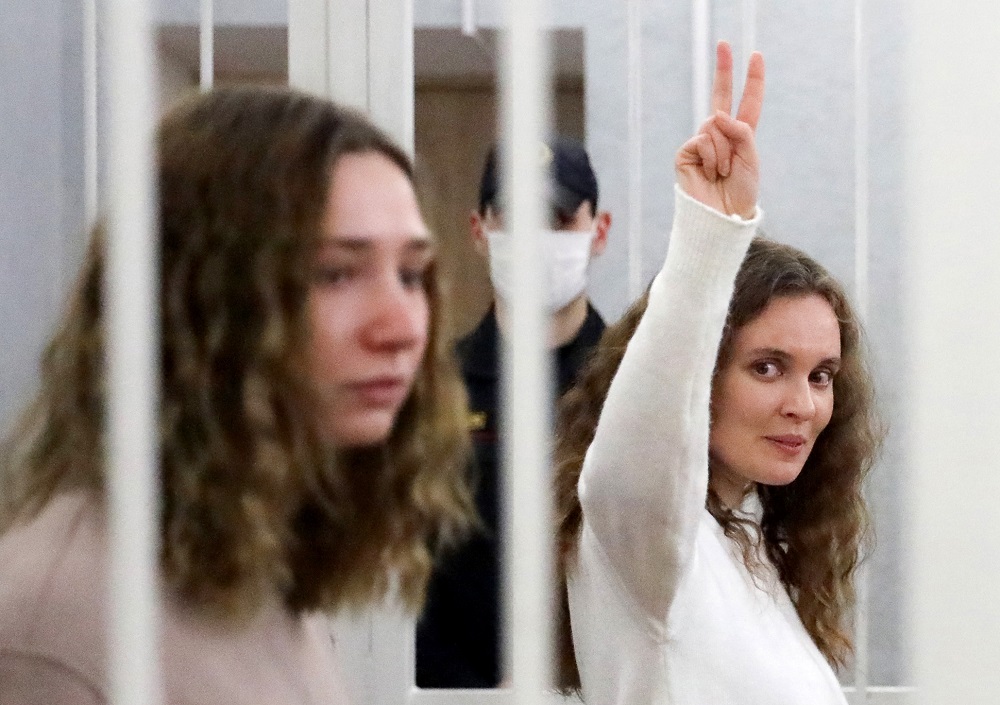Two Belarusian Belsat TV journalists have now spent over a year in a penal colony after being arrested for reporting on a demonstration. Katsyaryna Andreyeva and Darya Chultsova were arrested in November 2020 and sentenced to a penal colony for two years in February 2021. Both Belsat TV journalists are supposed to be freed next September as their time in pre-trial detention is included in the sentence.
On February 21, the Belarusian Association of Journalists (BAJ) reported on its website that Andreyeva has been moved from the penal colony of a prison. Neither her family nor her lawyer were informed of her transfer. According to BAJ, her move was connected to “investigative actions”, but no more information has been provided.
The Belarusian regime shows no sign of ceasing the persecution of journalists, as recent cases show. Hanna Kureichyk, an associate professor at Belarusian State University’s Journalism Department was arrested on February 18. She was sentenced to 15 days in prison for “disobedience to lawful demands of an official”. In September 2020, Kureichyk had described the situation in Belarus as the “deliberate destruction of journalism as a profession” as reported by BAJ.
On the same day, journalist Larysa Shchyrakova’s home was searched for the fourth time in a year. Her phone, camera, and computer were confiscated, and she was taken in for questioning. According to BAJ, she is suspected of being involved in organizing “disruptive actions” in September 2020. Shchyrakova claims she did not attend the protest march in question on September 20, 2020.
On February 7, former Radio Free Europe/Radio Liberty photographer Uladz Hrydzin was sentenced to prison for 13 days for disobeying the police. Hrydzin had refused to let police inside his apartment. He stopped communicating with his relatives on February 4 and several days later they found his apartment searched and his computer and belongings missing. The search was related to a bigger case concerning anti-government protests. Hrydzin was also detained in 2020 for filming a protest.
In January, the oldest Belarusian publication, Nasha Niva, was declared an “extremist formation” by the Ministry of Internal Affairs of Belarus. Nasha Niva has been published since 1906. Today it is a popular online media outlet. Belarusian media outlets BelaPan, Belsat TV, and RFE/RL have also been declared as extremist formations.
The media crackdown in Belarus has continued since the disputed presidential elections in August 2020. According to data gathered by BAJ, 32 Belarusian media workers currently remain behind bars. IPI urges Belarus to free all detained journalists and media workers. BAJ has been nominated for the UNESCO 2022 Guillermo Cano World Press Freedom Prize. The prize will be awarded on World Press Freedom Day on May 3.



